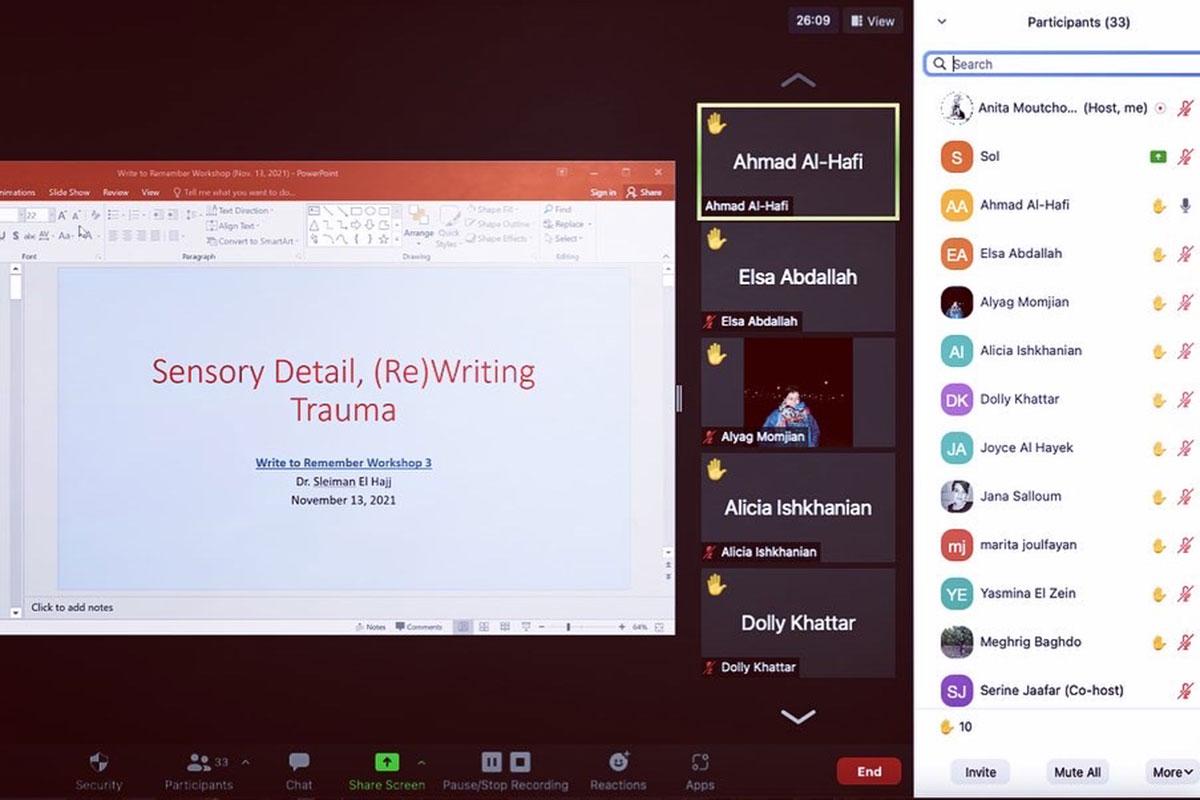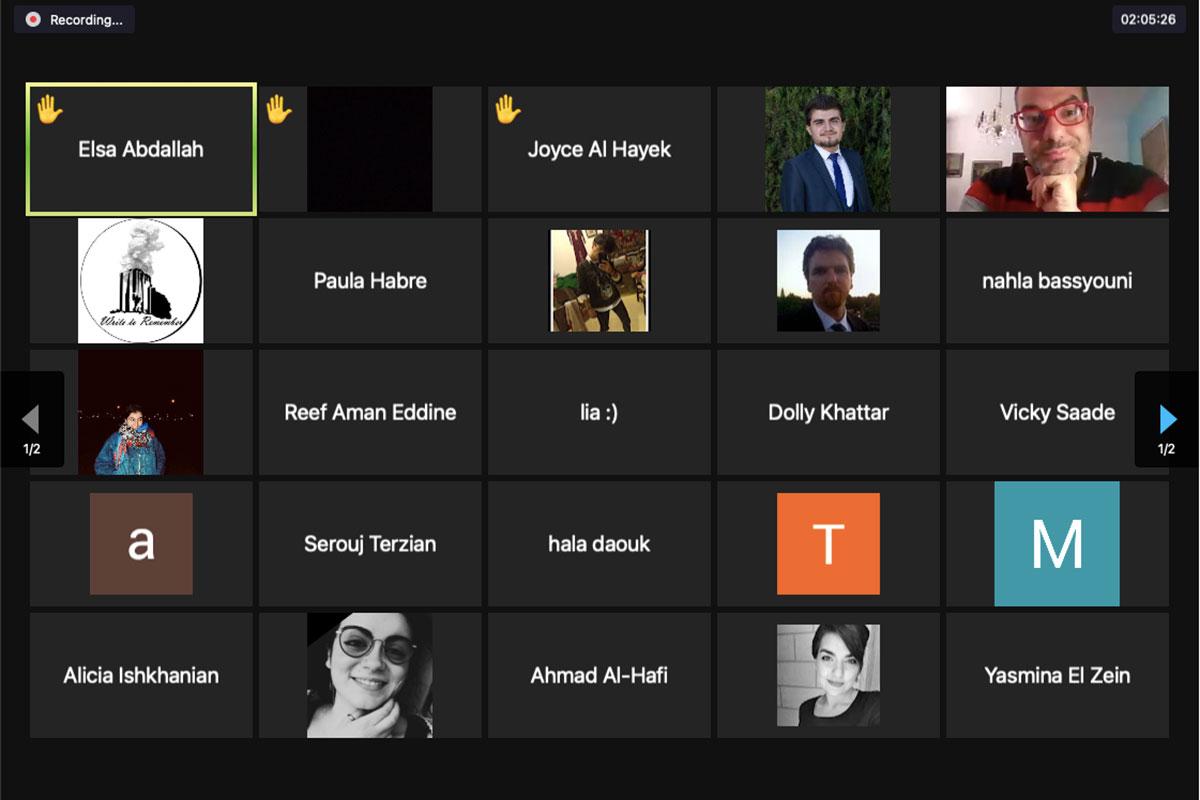Write to Remember Project Commemorates August 4 Explosion
LAU faculty launch creative writing initiative to help students impacted by the blast and document oral history.
The aftershocks of the massive August 4 explosion at the Port of Beirut were of such magnitude that they could not be swept under the rubble. Fear, disbelief and grief are only a few of the tangled emotions that will continue to fester if suppressed.
And what better way to release them than through self-expression? Believers in the cathartic power of words, faculty at LAU’s School of Arts and Sciences (SoAS) took the initiative to help the youth come to terms with the after-effects of the blast through a web-memoir where they could voice and preserve their memories.
The Write to Remember project was launched on the first anniversary of the blast, after Senior Instructor of English Paula Habre and Instructor of English Hala Daouk secured a $10,000 grant from the US Embassy, based on a proposal submitted with Haigazian University colleagues – former LAU faculty and Writing Center tutors – Anita Moutchoyan and Serine Jaafar.
The outreach project targets youth who had been directly or indirectly affected by the blast with the grant specifying an age range between 16-22.
“We felt this would be a good coverage of high school/secondary level and university students who can write about their trauma,” Habre said. “The project creates a safe platform and a safe space for them to share their feelings and deal with it collectively.”
The one-year initiative serves as an archive of stories, reflections, photos, and oral history related to the explosion and its aftermath through six virtual workshops.
The most recent workshop in November was presented by LAU Assistant Professor of Creative and Journalistic Writing Sleiman El Hajj, who had written about the blast in his widely-cited collective memoir “Writing (from) the Rubble: Reflections on the August 4, 2020 Explosion in Beirut, Lebanon.”
Dr. El Hajj focused on having participants in the workshop explore the use of sensory perceptions to navigate through and reimagine/(re)write trauma.
“Food and trauma have become interrelated for many survivors of August 4 since the sights, smells, sounds, texture, even taste of food, and food in preparation, are ones that now trigger PTSD recollections of the calamity,” Dr. El Hajj explained about the use of sensory details as an embodiment of trauma. “They are therefore no longer the comforting or pleasurable activities they once were.”
“If a concrete object can so easily, and so painfully swiftly, become an embodiment of trauma,” he added, “then thinking of ways of revoking – or at least helping to process – this reality is essential, especially in climates of perpetual tension, such as Lebanon.”
The participants shared short pieces they wrote during the workshop and gave each other support and feedback.
“I was impressed by their eagerness to share their lived narratives, however painful, and also by their alacrity in embracing the reimagined narrative approach, which I suggested as a way of reclaiming a semblance of agency over an otherwise slippery slope into inchoate trauma,” said Dr. El Hajj.
“By concentrating their experiences and/or perceptions of trauma into concrete objects, they managed, in part, to rethink and make sense of at least one aspect of all that we lost on that day,” he added.
The first workshop was led by the Regional English Language Officer at the US Embassy Eran Williams, and the second was presented by Zeina Daccache, the founder of Catharsis. Three open mic sessions will be held in venues that were damaged by the blast to allow the participants to share their pieces with a wider audience.
“We have officially completed half the workshops for this project and have three to go,” Habre said. “We look forward to the upcoming open mic event on December 11, which the participants are very excited to attend.”
“The team plans to recruit more local and foreign specialists for future workshops to help the youth come to terms with their trauma through writing,” she added.
Browse the Write to Remember website to learn about upcoming workshops and open mics, participants, oral narratives, and more.

